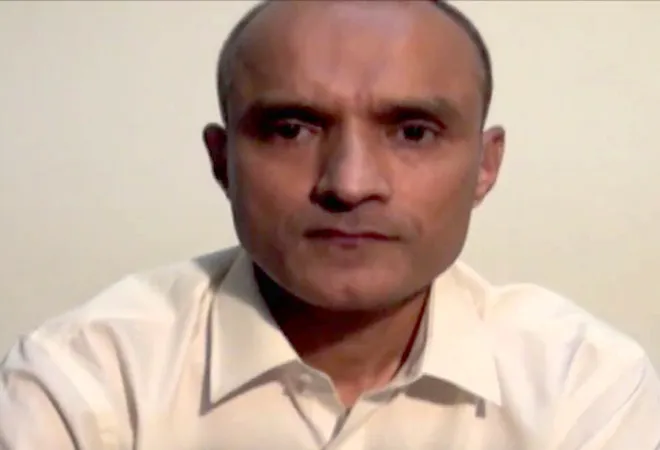Earlier this week, Pakistan sentenced Indian national Kulbhushan Jadhav to death on charges of espionage and subversive activities in Pakistan. Jadhav, who was arrested in March 2016 in Balochistan, is accused of being an Indian intelligence officer in the Research and Analysis Wing (RAW) who was tasked with spying and carrying out destabilizing activities in Balochistan and Karachi. While conceding that Jadhav is a former Indian naval officer, New Delhi has repeatedly denied that he had ties to any government or intelligence agency. His presence in Balochistan, his allegedly fake passport and proximity to India’s pet project at the Chabahar port in Iran have raised a number of questions. In Pakistan, his arrest was seen as the final nail in the proverbial coffin for Indian interference in the country. The circumstances surrounding Jadhav’s death sentence, particularly the use of a military court, underline the ongoing power struggle not only between Islamabad and New Delhi but also between the military and civilian establishments in Pakistan.
Unfortunately, this isn’t the first time an alleged “Indian spy” has been caught by Pakistan. In 1999, Pakistan executed Sheikh Shamim, nearly ten years after he was arrested on charges of spying. Indian farmer Sarabjit Singh, who mistakenly strayed across the border in 1997 weeks after terror attacks struck Lahore and Faisalabad, languished in a Pakistani prison for over 16 years without clemency. He was killed in his prison cell by fellow inmates days after the civilian government made steps towards his release. Other Indian nationals convicted and sentenced for spying have been luckier. Kashmir Singh returned to India in 2008 after having spent 35 years in a Pakistani prison. Jadhav can be sure that he will remain a pawn in the ongoing power struggle between Islamabad and New Delhi for a long time. His sentence is likely to remain a “your-move-now” incident, provoking India to respond, and not a final judgment that will lead to his death.
Jadhav was tried by the Field General Court Martial under Section 59 of the Pakistan Army Act, which makes a death sentence difficult to avoid. Amnesty International has opposed the death sentence, questioning the rationale behind Pakistan’s refusal to make the evidence against Jadhav public. Indeed, the details of Jadhav’s trial are murky, shrouded in secrecy. Given that his court proceedings were in a military court, the possibility for appeal is minimal to non-existent. Military courts were set up in the aftermath of the December 2014 attack at the Army Public School in Peshawar to ensure “speedy justice” in terror-related cases. While many have supported the courts, believing they provide an “effective deterrent” against terrorism, others have criticized them for their lack of transparency and for violating fundamental rights. Last month, President Mamnoon Hussain signed a bill extending the duration of the courts for another two years.
The quick trial and sentencing of Jadhav in a military court seems to be an attempt by Pakistan’s new Chief of Army Staff (COAS) Qamar Bajwa to flex his muscles and demonstrate his anti-India resolve. Sentencing Jadhav to death reassures radical anti-India Islamist parties in Pakistan of Bajwa’s unwavering commitment to the “Pakistani cause” and will likely bolster Bajwa’s status among such militant groups as well as some in the army. Additionally, in dealing the way it has with Jadhav, the Pakistan military-intelligence establishment has constricted the space left for the civilian government to deal with India. New Delhi has responded angrily to the sentencing, summoning Pakistani High Commissioner Abdul Basit and issuing a strongly worded demarche describing the military court proceedings as “farcical,” adding that killing Jadhav would amount to “premediated murder.” Jadhav’s conviction leaves Prime Minister Nawaz Sharif with little diplomatic maneuverability and few good options to work towards peace with his Indian counterpart. In sentencing the Indian “spy,” Bajwa is precariously testing Modi’s red-lines, waiting along with the rest of the world to see what Modi’s next step will be.
This commentary originally appeared in South Asian Voices.
The views expressed above belong to the author(s). ORF research and analyses now available on Telegram! Click here to access our curated content — blogs, longforms and interviews.




 PREV
PREV


